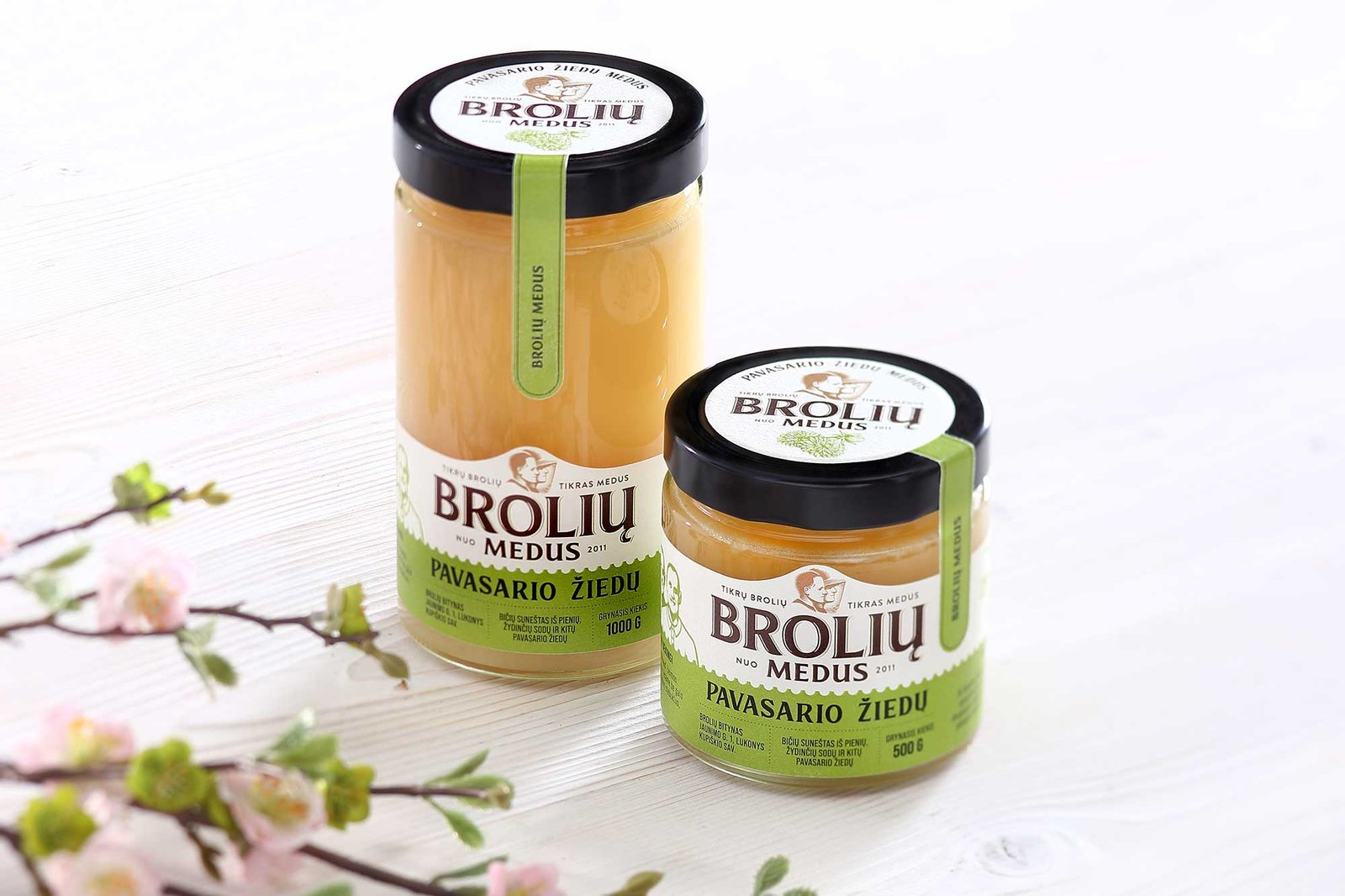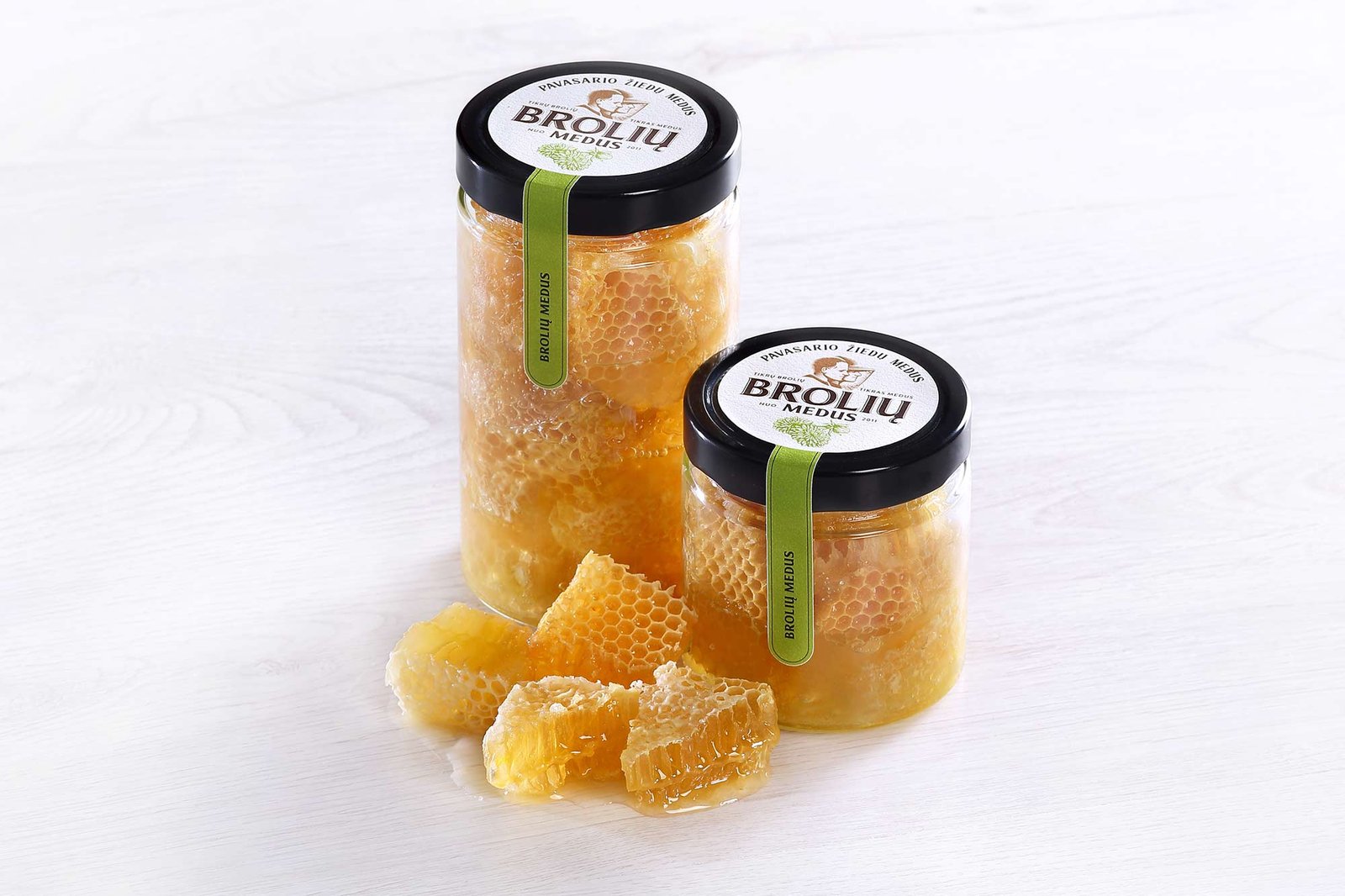Blog’as
The pancreas and honey. Is diabetes a good reason not to consume honey?

Honey is both a medicine, a food, a dessert and a snack. Lately, people have been consuming increasingly more of it and so questions frequently arise about whether it’s safe to consume alongside certain illnesses. Today we’ll be talking about whether the pancreas and honey have a positive relationship, whether diabetes and honey are compatible as well as sharing several folk recipes.
What is the pancreas?
The pancreas is a very important human gland. Even though it is quite small, if its activity is interrupted, the entire body starts to malfunction. In the human body, the pancreas is responsible for several functions. Two of the main functions are the production of digestive enzymes and the production as well as secretion of insulin into the blood. The digestive enzymes produced by the pancreas help digest all macronutrients (proteins, fats and carbohydrates), so if this function is disrupted, food can no longer be digested normally. This is not just detrimental to health, it can be life-threatening.
Insulin is important because it helps glucose that has entered the blood stream via the digestive tract enter the cells and supply them with energy. To the cell, a disordered energy supply is the same thing as a disordered gas supply to the engine for a car – you won’t be going far. So, it’s not worth messing around with your pancreas.
Disorders of the pancreas
Some of the most common disorders of the pancreas include diabetes and pancreatitis.
Diabetes and honey.
In diabetes, insulin (due to insufficient amounts or insulin resistance) cannot help blood glucose enter the body’s tissues. Unfortunately, sweet blood is not a desirable outcome for the human body. In the long-run, it can damage the smaller blood vessels and lead to tissue necrosis, diabetic foot or even the amputation of a limb. One of the main treatment methods for (type 2) diabetes is adopting a healthy lifestyle that encompasses both diet and exercise. Because the prescribed treatment drastically reduces the amount of fast-acting carbohydrates in a patient’s diet, people are often afraid to consume honey as well.
However, the pancreas and honey not only don’t work against each other, they even help each other. Scientists are constantly doing research on the therapeutic powers of honey and its effect on many diseases. Diabetes is no exception. Studies have shown that despite the fact that honey is almost a pure carbohydrate, its composition is so unique that it actually helps reduce the amount of glucose in the blood and is a better tolerated alternative to sugar than most sweeteners. Read more about this in our post on What honey is made of.
Pancreatitis
Pancreatitis is an insidious disease. Inflammation in the pancreas has a great impact on its functions. Especially if the inflammation is acute. This is why in this case it is best to consult with your doctor about consuming honey. Because honey does help the pancreas function in the post-acute and recovery period, it is often recommended then, however, during the acute stage, honey should be avoided.
How are the pancreas and honey compatible?
The true mechanisms of their interaction have not entirely been uncovered. However, several studies have already confirmed that honey decreases the amount of glucose in the blood stream, while increasing the amount of insulin, thus helping control a diabetic’s condition. What is more, honey has a great impact on our ‘good’ gut bacteria, on which the condition of our entire body depends. 
Because honey contains a great amount of simple carbohydrates, it requires substantially fewer digestive enzymes to digest than sugar, which places less of a burden on the pancreas and it does not tire as easily. If we combine this with a reduced amount of fat intake – digestion goes more smoothly.
We also wrote not so long ago about stomach acidity and the positive effect of honey in reducing reflux symptoms, so honey has a positive effect on the entire digestive tract and more.
The pancreas and honey. Folk recipes for maintaining good health
Garlic and honey
Crush a clove of garlic with some honey and consume slightly less than a teaspoon of the mixture every morning before breakfast. Experts of folk medicine say that this helps strengthen the immune system by stimulating tissue regeneration. The pancreas stands to benefit from this regenerative process as well.
Burdock juice with honey
They say mixing a cup of burdock leaf juice with several spoons of honey produces a magical drink. Just a couple of spoonfuls of this drink half an hour before a meal, three times a day, not only improves appetite, but also helps remove toxins, has a strong anti-inflammatory and antibacterial impact on all organ systems but especially the digestive system.
A glass of warm milk with honey
It turns out this popular home remedy for colds can also help our pancreas. Specialists recommend drinking this milk-based drink in the morning and then not eating for about four hours. This should make the sufferer feel better within a week, making the feeling of heaviness go away.
Honey and the pancreas are definitely not incompatible, so there should be no fear about consuming it because of its high carbohydrate content. However, moderation is key here, as well as consulting with a physician if you suffer from a disorder of the digestive tract or, especially, a disease of the liver.
Our honey for your good health:
Liepų medus – vasaros žiedų medus
€5.20 – €9.20Pavasarinis medus – pavasario žiedų medus
€4.50 – €8.60Lipčiaus medus – rudens žiedų medus
€5.20 – €9.30Grikių medus
€4.90 – €9.10Medaus korys
€4.80 – €8.20Sources:
- Rao, P. V., & Gan, S. H. (2014). Cinnamon: a multifaceted medicinal plant. Evidence-based complementary and alternative medicine : eCAM, 2014, 642942. https://doi.org/10.1155/2014/642942
- Hewlings, S. J., & Kalman, D. S. (2017). Curcumin: A Review of Its Effects on Human Health. Foods (Basel, Switzerland), 6(10), 92. https://doi.org/10.3390/foods6100092











